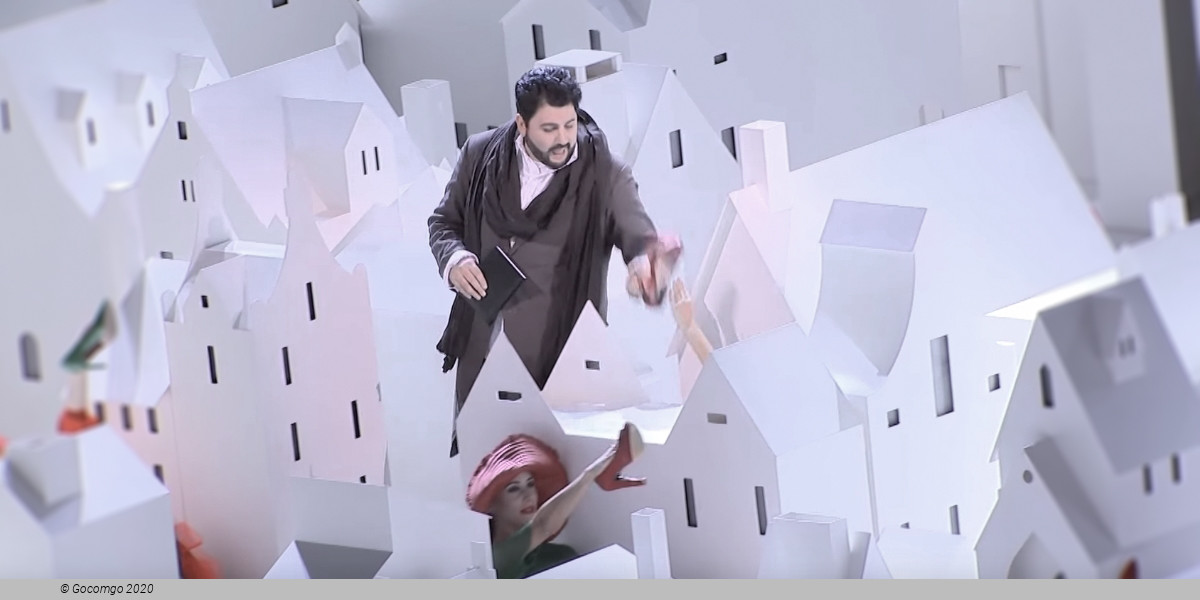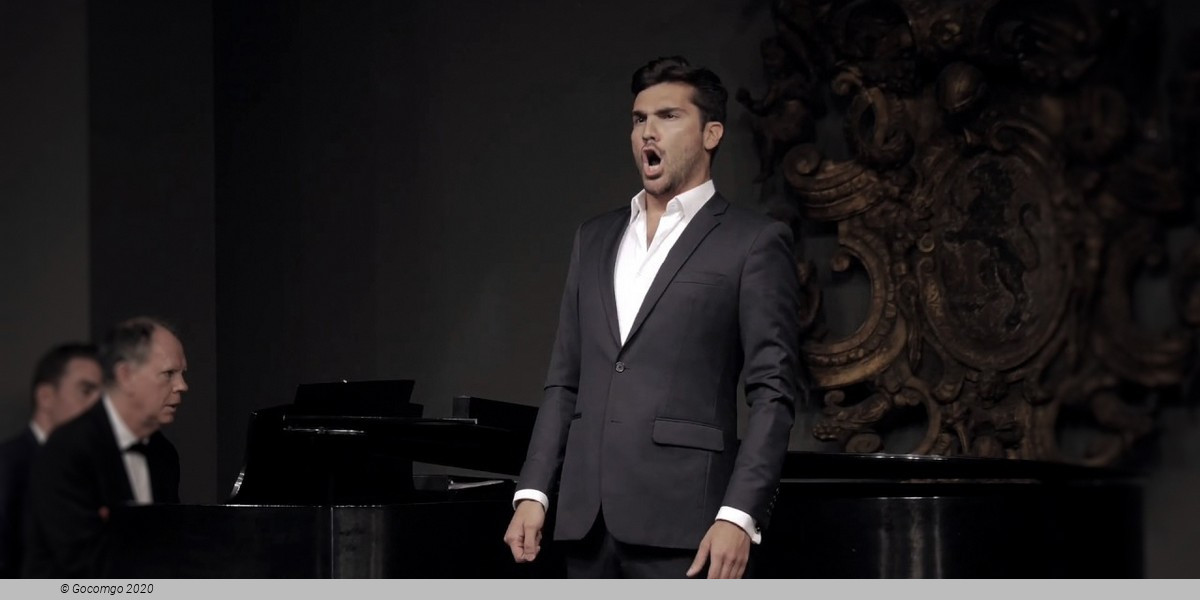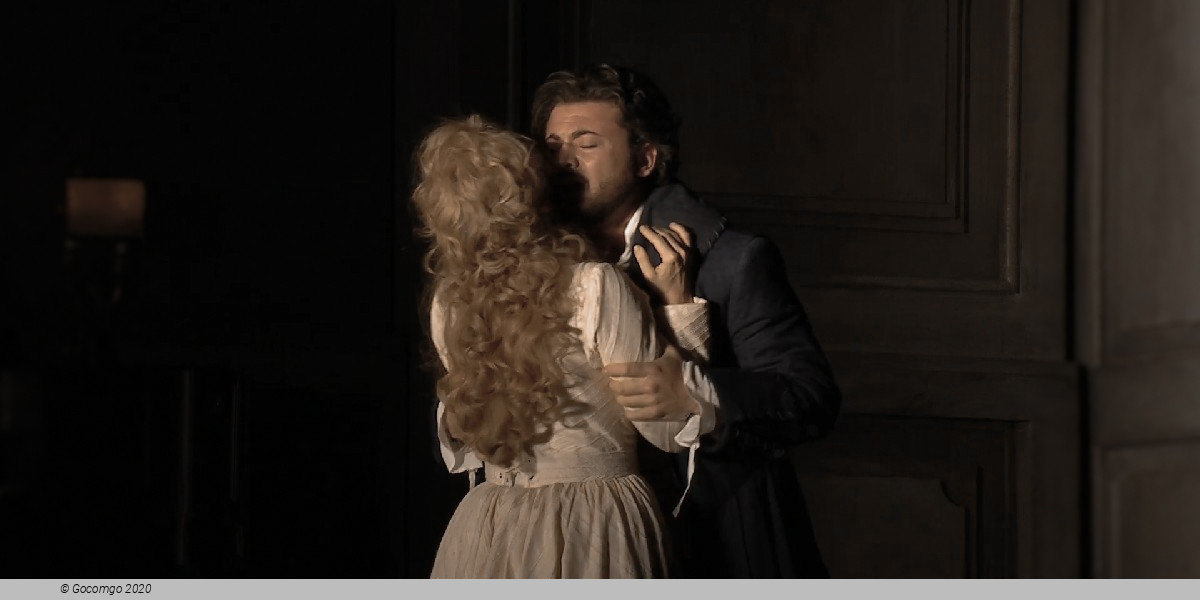Events48 results
About
Jules Émile Frédéric Massenet (12 May 1842 – 13 August 1912) was a French composer of the Romantic era best known for his operas, of which he wrote more than thirty. The two most frequently staged are Manon (1884) and Werther (1892). He also composed oratorios, ballets, orchestral works, incidental music, piano pieces, songs and other music.
While still a schoolboy, Massenet was admitted to France's principal music college, the Paris Conservatoire. There he studied under Ambroise Thomas, whom he greatly admired. After winning the country's top musical prize, the Prix de Rome, in 1863, he composed prolifically in many genres, but quickly became best known for his operas. Between 1867 and his death forty-five years later he wrote more than forty stage works in a wide variety of styles, from opéra-comique to grand-scale depictions of classical myths, romantic comedies, lyric dramas, as well as oratorios, cantatas and ballets. Massenet had a good sense of the theatre and of what would succeed with the Parisian public. Despite some miscalculations, he produced a series of successes that made him the leading composer of opera in France in the late 19th and early 20th centuries.
Like many prominent French composers of the period, Massenet became a professor at the Conservatoire. He taught composition there from 1878 until 1896, when he resigned after the death of the director, Ambroise Thomas. Among his students were Gustave Charpentier, Ernest Chausson, Reynaldo Hahn and Gabriel Pierné.
By the time of his death, Massenet was regarded by many critics as old-fashioned and unadventurous although his two best-known operas remained popular in France and abroad. After a few decades of neglect, his works began to be favourably reassessed during the mid-20th century, and many of them have since been staged and recorded. Although critics do not rank him among the handful of outstanding operatic geniuses such as Mozart, Verdi and Wagner, his operas are now widely accepted as well-crafted and intelligent products of the Belle Époque.
Music
Background
In the view of his biographer Hugh Macdonald, Massenet's main influences were Gounod and Thomas, with Meyerbeer and Berlioz also important to his style. From beyond France he absorbed some traits from Verdi, and possibly Mascagni, and above all Wagner. Unlike some other French composers of the period, Massenet never fell fully under Wagner's spell, but he took from the earlier composer a richness of orchestration and a fluency in treatment of musical themes.
Although when he chose, Massenet could write noisy and dissonant scenes – in 1885 Bernard Shaw called him "one of the loudest of modern composers" – much of his music is soft and delicate. Hostile critics have seized on this characteristic, but the article on Massenet in the 2001 edition of Grove's Dictionary of Music and Musicians observes that in the best of his operas this sensual side "is balanced by strong dramatic tension (as in Werther), theatrical action (as in Thérèse), scenic diversion (as in Esclarmonde), or humour (as in Le portrait de Manon)."
Massenet's Parisian audiences were greatly attracted by the exotic in music, and Massenet willingly obliged, with musical evocations of far-flung places or times long past. Macdonald lists a great number of locales depicted in the operas, from ancient Egypt, mythical Greece and biblical Galilee to Renaissance Spain, India and Revolutionary Paris. Massenet's practical experience in orchestra pits as a young man and his careful training at the Conservatoire equipped him to make such effects without much recourse to unusual instruments. He understood the capabilities of his singers, and composed with close, detailed regard for their voices.
Operas
Massenet wrote more than thirty operas. Authorities differ on the exact total because some of the works, particularly from his early years, are lost and others were left incomplete. Still others, such as Don César de Bazan and Le roi de Lahore, were substantially recomposed after their first productions and exist in two or more versions. Grove's Dictionary of Music and Musicians lists forty Massenet operas in all, of which nine are shown as lost or destroyed. The "OperaGlass" website of Stanford University shows revised versions as premieres, and The New Grove Dictionary of Opera, does not: their totals are forty-four and thirty-six respectively.
Having honed his personal style as a young man, and sticking broadly with it for the rest of his career, Massenet does not, as some other composers do, lend himself to classification into clearly defined early, middle and late periods. Moreover, his versatility means that there is no plot or locale that can be regarded as typical Massenet. Another respect in which he differed from many opera composers is that he did not work regularly with the same librettists: Grove lists more than thirty writers who provided him with librettos.
The 1954 (fifth) edition of Grove said of Massenet, "to have heard Manon is to have heard the whole of him". In 1994 Andrew Porter called this view preposterous. He countered, "Who knows Manon, Werther and Don Quichotte knows the best of Massenet, but not his range from heroic romance to steamy verismo."Massenet's output covered most of the different subgenres of opera, from opérette (L'adorable Bel'-Boul and L'écureuil du déshonneur – both early, lost pieces) and opéra-comique such as Manon, to grand opera – Grove categorises Le roi de Lahore as "the last grand opera to have a great and widespread success". Many of the elements of traditional grand opera are written into later large-scale works such as Le mage and Hérodiade. Massenet's operas consist of anything from one to five acts, and although many of them are described on the title pages of their scores as "opéra" or "opéra comique", others have carefully nuanced descriptions such as "comédie chantée", "comédie lyrique", "comédie-héroïque", "conte de fées", "drame passionnel", "haulte farce musicale", "opéra légendaire", "opéra romanesque" and "opéra tragique".
In some of his operas, such as Esclarmonde and Le mage, Massenet moved away from the traditional French pattern of free-standing arias and duets. Solos meld from declamatory passages into more melodic form, in a way that many contemporary critics thought Wagnerian. Shaw was not among them: in 1885 he wrote of Manon:
Of Wagnerism there is not the faintest suggestion. A phrase which occurs in the first love duet breaks out once or twice in subsequent amorous episodes, and has been seized on by a few unwary critics as a Wagnerian leit motif. But if Wagner had never existed, Manon would have been composed much as it stands now, whereas if Meyerbeer and Gounod had not made a path for M. Massenet, it is impossible to say whither he might have wandered, or how far he could have pushed his way.
The 21st-century critic Anne Feeney comments, "Massenet rarely repeated musical phrases, let alone used recurrent themes, so the resemblance [to Wagner] lies solely in the declamatory lyricism and enthusiastic use of the brass and percussion." Massenet enjoyed introducing comedy into his serious works, and writing some mainly comic operas. In Macdonald's view of the comic works, Cendrillon and Don Quichotte succeed, but Don César de Bazan and Panurge are less satisfying than "the more delicately tuned operas such as Manon, Le portrait de Manon and Le jongleur de Notre-Dame, where comedy serves a more complex purpose."
According to Operabase, analysis of productions around the world in 2012–13 shows Massenet as the twentieth most popular of all opera composers, and the fourth most popular French one, after Bizet, Offenbach and Gounod. The most often performed of his operas in the period are shown as Werther (63 productions in all countries), followed by Manon (47), Don Quichotte (22), Thaïs (21), Cendrillon (17), La Navarraise (4), Cléopâtre (3), Thérèse (2), Le Cid (2), Hérodiade (2), Esclarmonde (2), Chérubin (2) and Le mage (1).
Other vocal music
Between 1862 and 1900 Massenet composed eight oratorios and cantatas, mostly on religious subjects. There is a degree of overlap between his operatic style and his choral works for church or concert hall performance. Vincent d'Indy wrote that there was "a discreet and semi-religious eroticism" in Massenet's music. The religious element was a regular theme in his secular as well as sacred works: this derived not from any strong personal faith, but from his response to the dramatic aspects of Roman Catholic ritual. The mingling of operatic and religious elements in his works was such that one of his oratorios, Marie-Magdeleine, was staged as an opera during the composer's lifetime. Elements of the erotic and some implicit sympathy for sinners were controversial, and may have prevented his church works establishing themselves more securely. Arthur Hervey, a contemporary critic not unsympathetic to Massenet, commented that Marie-Magdeleine and the later oratorio Ève (1875) were "the Bible doctored up in a manner suitable to the taste of impressionable Parisian ladies – utterly inadequate for the theme, at the same time very charming and effective." Of the four works categorised by Irvine and Grove as oratorios, only one, La terre promise (1900), was written for church performance. Massenet used the term "oratorio" for that work, but he called Marie-Magdeleine a "drame sacré", Ève a "mystère", and La Vierge (1880) a "légende sacrée".
Massenet composed many other smaller-scale choral works, and more than two hundred songs. His early collections of songs were particularly popular and helped establish his reputation. His choice of lyrics ranged widely. Most were verses by poets such as Musset, Maupassant, Hugo, Gautier and many lesser-known French writers, with occasional poems from overseas, including Tennyson in English and Shelley in French translation. Grove comments that Massenet's songs, though pleasing and impeccable in craftsmanship, are less inventive than those of Bizet and less distinctive than those of Duparc and Fauré.
Orchestral and chamber music
Massenet was a fluent and skilful orchestrator, and willingly provided ballet episodes for his operas, incidental music for plays, and a one-act stand-alone ballet for Vienna (Le carillon, 1892). Macdonald remarks that Massenet's orchestral style resembled that of Delibes, "with its graceful movement and bewitching colour", which was highly suited to classical French ballet. The Méditation for solo violin and orchestra, from Thaïs, is possibly the best known non-vocal piece by Massenet, and appears on many recordings. Another popular stand-alone orchestral piece from the operas is Le dernier sommeil de la Vierge from La Vierge, which has featured on numerous discs since the middle of the 20th century.
A Parisian critic, after seeing La grand' tante, declared that Massenet was a symphonist rather than a theatre composer. At the time of the British premiere of Manon in 1885, the critic in The Manchester Guardian, reviewing the work enthusiastically, nevertheless echoed his French confrère's view that the composer was really a symphonist, whose music was at its best when purely orchestral. Massenet took a wholly opposite view of his talents. He was temperamentally unsuited to writing symphonically: the constraints of sonata form bored him. He wrote, in the early 1870s, "What I have to say, musically, I have to say rapidly, forcefully, concisely; my discourse is tight and nervous, and if I wanted to express myself otherwise I would not be myself." His efforts in the concertante field made little mark, but his orchestral suites, colourful and picturesque according to Grove, have survived on the fringes of the repertoire. Other works for orchestra are a symphonic poem, Visions (1891), an Ouverture de Concert (1863) and Ouverture de Phèdre (1873). After early attempts at chamber music as a student, he wrote little more in the genre. Most of his early chamber pieces are now lost; three pieces for cello and piano survive.
Recordings
The only known recording made by Massenet is an excerpt from Sapho, "Pendant un an je fus ta femme", in which he plays a piano accompaniment for the soprano Georgette Leblanc. It was recorded in 1903, and was not intended for publication. It has been released on compact disc (2008), together with contemporary recordings by Grieg, Saint-Saëns, Debussy and others.
In Massenet's later years, and in the decade after his death, many of his songs and opera extracts were recorded. Some of the performers were the original creators of the roles, such as Ernest van Dyck (Werther), Emma Calvé (Sapho),[88] Hector Dufranne (Grisélidis), and Vanni Marcoux (Panurge). Complete French recordings of Manon and Werther, conducted by Élie Cohen, were issued in 1932 and 1933 and have been republished on CD. The critic Alan Blyth comments that they embody the original, intimate Opéra-Comique style of performing Massenet.
Of Massenet's operas, the two best known, Manon and Werther, have been recorded many times, and studio or live recordings have been issued of many of the others, including Cendrillon, Le Cid, Don Quichotte, Esclarmonde, Hérodiade, Le jongleur de Notre-Dame, Le mage, La Navarraise and Thaïs. Conductors on these discs include Sir Thomas Beecham, Richard Bonynge, Riccardo Chailly, Sir Colin Davis, Patrick Fournillier, Sir Charles Mackerras, Pierre Monteux, Sir Antonio Pappano and Michel Plasson. Among the sopranos and mezzos are Dame Janet Baker, Victoria de los Ángeles, Natalie Dessay, Renée Fleming, Angela Gheorghiu and Dame Joan Sutherland. Leading men in recordings of Massenet operas include Roberto Alagna, Gabriel Bacquier, Plácido Domingo, Thomas Hampson, Jonas Kaufmann, José van Dam, Alain Vanzo and Rolando Villazón.
In addition to the operas, recordings have been issued of several orchestral works, including the ballet Le carillon, the piano concerto in E♭, the Fantaisie for cello and orchestra, and orchestral suites. Many individual mélodies by Massenet were included in mixed recitals on record during the 20th century, and more have been committed to disc since then, including, for the first time, a CD in 2012, exclusively devoted to his songs for soprano and piano.





